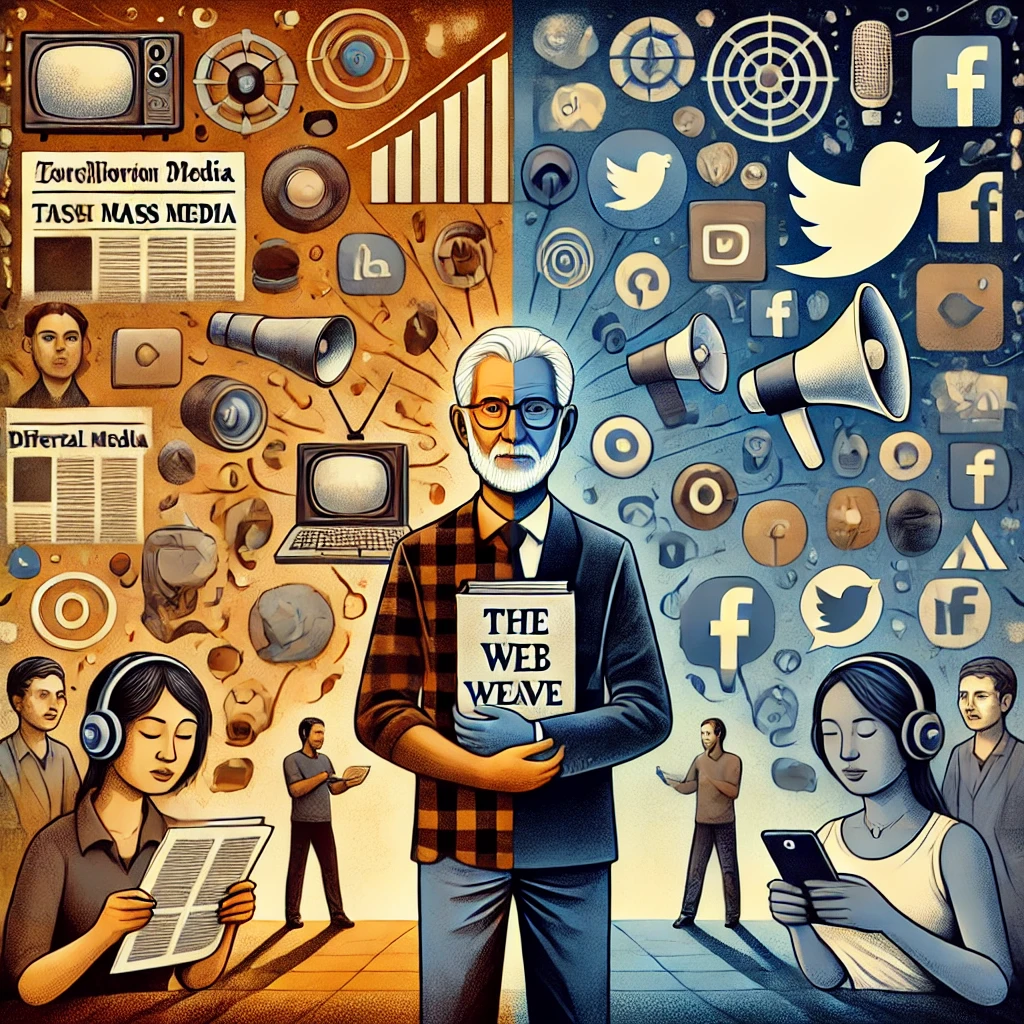In The Web We Weave, Jeff Jarvis discusses the tensions between traditional mass media and the rise of the internet, emphasizing how the web has provided a platform for diverse voices that were previously sidelined. Jarvis argues that mass media, traditionally dominated by older, established institutions, has struggled with the democratization of information, often reacting with resistance and moral panic as public discourse shifts online. He explores historical cycles of media-driven moral panics—from novels to video games—and critiques the persistent control exerted by powerful interests over public narratives. As a media critic and academic, Jarvis champions internet freedoms and cautions against homogenizing voices in the age of AI. He advocates for a decentralized media landscape where information is more community-driven, resisting the monopolistic tendencies of both old media and tech giants.
Podcast: Play in new window | Download
Jeff Jarvis:
With The Web We Weave, I’m kind of looking at what comes after mass media. You’re right. And the problem for mass media is they resent the hell out of it. They were in charge of everything. They had hegemony over all that we saw and read and they can’t stand that there are voices who were always there. They’re not new voices, but voices who couldn’t be heard before because they weren’t represented in mass media. And so my theory about the internet is that it enabled these voices to at last have their stage, their microphone, and big old mass media run by old white men who look like me have resented it. And so that bleeds into the coverage of the internet. Now media have had many moral panics over the years starting with novels, which were going to destroy women’s morals, and on to Nickelodeons when the Chicago Tribune editorialized against them because they were doing horrible things to the city of Chicago; to film, to radio, let’s not forget the telegraph, too, and then also obviously television and video games and rock lyrics and so on.


